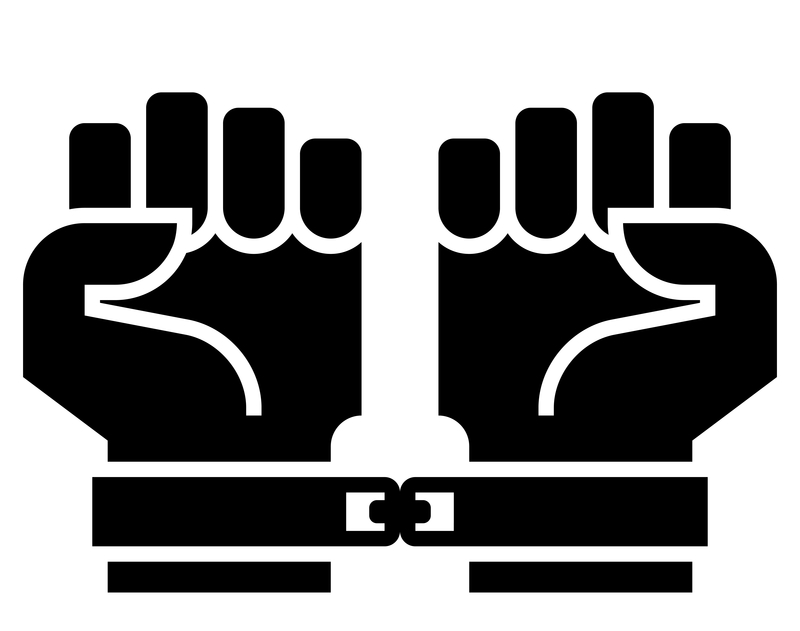 I was breathing easy about Clemetin. His life was going smoothly.
I was breathing easy about Clemetin. His life was going smoothly.
He hadn’t been stopped by the cops in quite a while. Perhaps as a result of the change in the stop and frisk policies adopted by the city some months ago. And he’s been very proud that he has stopped shoplifting — something that for Clemetin has been a way of life since he was a child.
But then, one day went by and then another without a word from him. I didn’t think much about it until the phone rang from a number I didn’t know and I picked up. It was Clemetin. He was, he told me, in the police precinct “holding pen” and had been there since the day before.
What happened?
He was walking down the street not so far from where he lives when two cops stopped him. They searched him and found some marijuana in his pocket, so they hauled him in.
In New York City, the unlawful possession of a small amount of marijuana is not a crime. It’s a violation — akin to a traffic ticket.
But when Clemetin gets stopped, they check his record right there on the spot. They see a lifetime of trouble, and they don’t just give him a ticket, wave goodbye and tell him to have a nice day. No, instead they haul him in.
But this time, there was a twist.
An offer to be a snitch
At the station, a police officer sat him down and asked him to become an informant. All he’d have to do was to whisper a word to an undercover cop when he knew of a crime in progress.
What would they do in return?
They’d let him loose right then, and if he shoplifted now and again, they’d turn a blind eye!
According to Clemetin, the officer did notice that he hadn’t been in trouble for quite some time, but he made the offer anyway. Saying something like, “If you decide to start stealing again, we’ll overlook it.”
Now to be clear, I didn’t get a verbatim account from Clemetin. But this is the gist of what happened. And thank heavens, Clemetin was smart enough to say no.
What happened next?
They told him that there was a warrant out for his arrest, and arrest him they did.
They took his phone and his keys and his identification and put him in the holding pen for 24 hours. He was theirs. The next day he got access to a phone and called to let me know what had happened.
He didn’t think there really was a warrant for his arrest so he figured he’d be out soon. But no. They carted him to Rikers Island where he spent two more days for no good reason.
Eventually, they took him to court to appear in front of a judge. But when the court clerk looked up his record, she told him that there was no warrant and no need to see the judge. She said that as soon as the papers were signed, they’d turn him loose.
But that’s not what happened. Once again, back he went to Rikers for another 24 hours.
Finally, on the morning of the 5th day, they let him go with nothing but a bus pass to get home. No phone, no keys, no money, no identification. All of those were back at the precinct where they had tried to recruit him.
Don’t you wonder what would have happened if he had said he’d be their snitch?
How devastating must it feel?
By the time I saw Clemetin on the sixth day, he had regained his composure and was the remarkably resilient man I know. But I can’t help thinking about how devastating it must feel to be taken against your will for doing nothing and having no recourse.
By the time Clemetin got out and was able to call me, I was seriously concerned. Had he not appeared that morning, I would have called a lawyer.
But in retrospect, I realize that four days was way too long for me to wait. Clemetin should know without a question that if there’s trouble, we’ll be out there advocating and fighting for him, right from the start.
No one in this country should have to worry that the legal system will lock them up and throw away the key without someone on the outside fighting like hell. Ever!
Consider: Who fights for your rights?
If you were arrested, who would you call? Are you confident that people would do everything possible to make sure you were treated fairly?
Now think about all of the people in that country who don’t have people who will go to bat for them. And imagine what it would feel like to be locked up for no reason with no recourse. Then, if you’re inclined, send a contribution to the Legal Aid Society in your area.
Do you think Clemetin should have agreed to be an informant? Share your thoughts below, or come on over to Facebook and leave your comment there.
